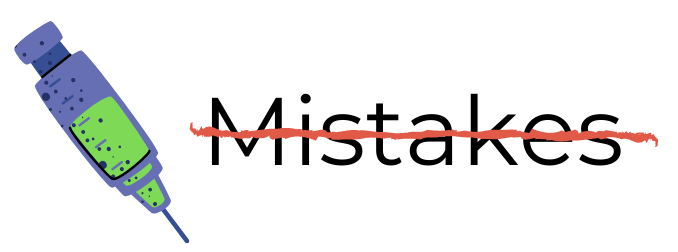Good morning! It has been 367 days since the first documented human case of COVID-19. I guess that’s a year since this appears to have first emerged.
Today, a story broke in the New York Times estimating the duration of immunity to SARS-CoV-2. That’s going to be the focus of what I discuss today, but I think it’s going to occupy a couple of issues this week.
Also, I have a response to a reader vaccine question, about mRNA technologies.
I know I owe a couple of you some attention to some stuff you’ve sent me—I will get to it soon. There’s a list, in order of how hard I think something is going to be to write about. I want to make sure I do everything that I’m asked about the justice it deserves.
As usual, bolded terms are linked to the running newsletter glossary.
Keep the newsletter growing by sharing it! I love talking about science and explaining important concepts in human health, but I rely on all of you to grow the audience for this:
Now, let’s talk COVID.
Evidence suggests that immunity to SARS-CoV-2 may last for years
One disadvantage that we have in combating this virus—and understanding it—is that we don’t have a long follow up time. The first confirmed case was about 367 days ago, more or less, and that means even if we had known about this virus the minute it appeared, the most we would have is one patient with a year of follow-up.
For this reason, it has been hard to understand how long immunity to SARS-CoV-2 might last—now that we know it is possible to be immune at all. How do we know if immunity can be lifelong, if nobody has lived their entire life with immunity?
One way to estimate it is to look at the decay of populations of immune cells and immune molecules. This is a bit like carbon dating, but looking into the future instead of the past. We know a lot about how the cells in the human body age, just like we know about how the radioactive isotopes of carbon decay. By understanding the rate of decay, we can estimate how long it might take for a mummified body to reach the abundance of carbon isotopes that it has when it is taken back out of the tomb.
A similar idea can work for immune cells—if we look at how the populations of immune cells responding to a certain agent change in size over time, we can understand how they might continue to change over a person’s lifetime.
Enter a new study that looked at levels of antibodies and memory B cells in recovered persons over time, written up nicely in the New York Times: https://www.nytimes.com/2020/11/17/health/coronavirus-immunity.html
This study has long follow-up and 185 patients. Really important here is that there are 41 patients with more than 6 months of follow-up. The work demonstrates that after 6 months, levels of antibodies do not go down much, and levels of memory B cells actually go up. Memory cell populations often shrink over time, though that decay is typically slow. Knowing that these cells increased the size of their population suggests that the immune memory they enable will continue for quite some time.
Populations of T cells appeared to be a little shorter lived, with a “half-life” (meaning the time until their populations decreased by 50%) of around 3-5 months. But this is not so surprising either, since T-cells generally stay at a high population when they have something to do, and then pull back their numbers after the infection subsides. Even so, at a half life of 3-5 months, there would be substantial populations of these cells circulating for quite some time.
There’s just one problem with this study: it’s a preprint, and I don’t like to spread news from preprints unless I’m relatively confident in them. In this case, I am relatively confident because I know the people who wrote this paper, and it has some seriously heavy hitters backing them up with quotes in that NYTimes piece.
That said, I think the best thing about science is that you don’t need to trust anyone if you really put in the time to understand the data. They can be convincing on their own. For this reason, I intend to do an in-depth later this week where I walk through this paper with you.
I’m convinced there’s a good chance that immunity to SARS-CoV-2 can last for quite some time. Later this week, I’ll do my best to convince you as well.
What am I doing to cope with the pandemic? This:
Going to bed earlier
I’ve been trying to get to bed earlier the past couple of weeks, and it has been working wonders. It’s a little thing, but it really does make a difference in these winter months. It gets dark early, and it feels late earlier. I’ve decided it’s better for my health to listen to my body when it decides that it’s late, and just go to bed. I’m sharing this because I bet quite a few of you may feel a little worn out. Try and rest. It helps.
Today, I got the following question from a reader named Karen:
Thanks for the excellent analysis, as always! Here's a question for you: my husband has been skeptical of the safety of these two vaccines because they are, we think anyway, mRNA vaccines. We understand this to be an entirely new kind of vaccine. He's concerned that the safety profile may be less well understood than others. I'd love to learn whether this is a valid concern or not. Thanks!
This is such a good question. Here’s how I answered:
You're correct that these are both mRNA vaccines, yes. And you're right to have a certain amount of reservations regarding the potential safety issues of a new vaccine technology. However, I don't think that there are huge reasons to be concerned about these on the basis of their being mRNA-based. mRNA is one of the most abundant things in a human cell, and we know rather a lot about it and how it is made. While this doesn't guarantee that there won't be unforeseen safety issues related to the mRNA-based mechanism, I would put the risk of that at a low level.
Instead, when worrying about safety, I would look more to the fact that this vaccine generates an immune response to antigens from an ill-characterized virus. The immune response to the virus spike protein might have other impacts. What if there is a natural human protein that has some similarity to the virus spike? Is it possible that people will have cross-reactive antibodies that will cause some kind of autoimmune reaction? This is not so far-fetched, though generally such things are rare. Still, we see these long-term reactions to COVID-19 that I would suspect have an autoimmune component, and we need to be watchful that the vaccine won't be able to generate that type of response. I would also put this at a low level of risk overall, but it's the main thing that I'm looking for in any safety data that might be released.
The thing is, that won't be unique to an mRNA vaccine. If that happens, it would be because of the virus antigens used, and vaccine designs would need to be revised to avoid whatever signal is causing the safety event. Thankfully, we don't have any evidence of such a safety outcome. Let's cross that bridge if any only if we come to it.
Anyhow, thank you for reading and I'm glad the newsletter is proving useful!
You might have some vaccine questions too! Send them in.
Join the conversation, and what you say will impact what I talk about in the next issue.
Also, let me know any other thoughts you might have about the newsletter. I’d like to make sure you’re getting what you want out of this.
This newsletter will contain mistakes. When you find them, tell me about them so that I can fix them. I would rather this newsletter be correct than protect my ego.
Though I can’t correct the emailed version after it has been sent, I do update the online post of the newsletter every time a mistake is brought to my attention.
No corrections since last issue.
See you all next time.
Always,
JS







I liked this video about RNA vaccines. Dunno if you have seen it already:
https://www.youtube.com/watch?v=aILLJOa13CA
If someone developed natural immunity, and, as the Times article suggests, that immunity is long-lasting, is there any benefit or need for that person to be vaccinated?